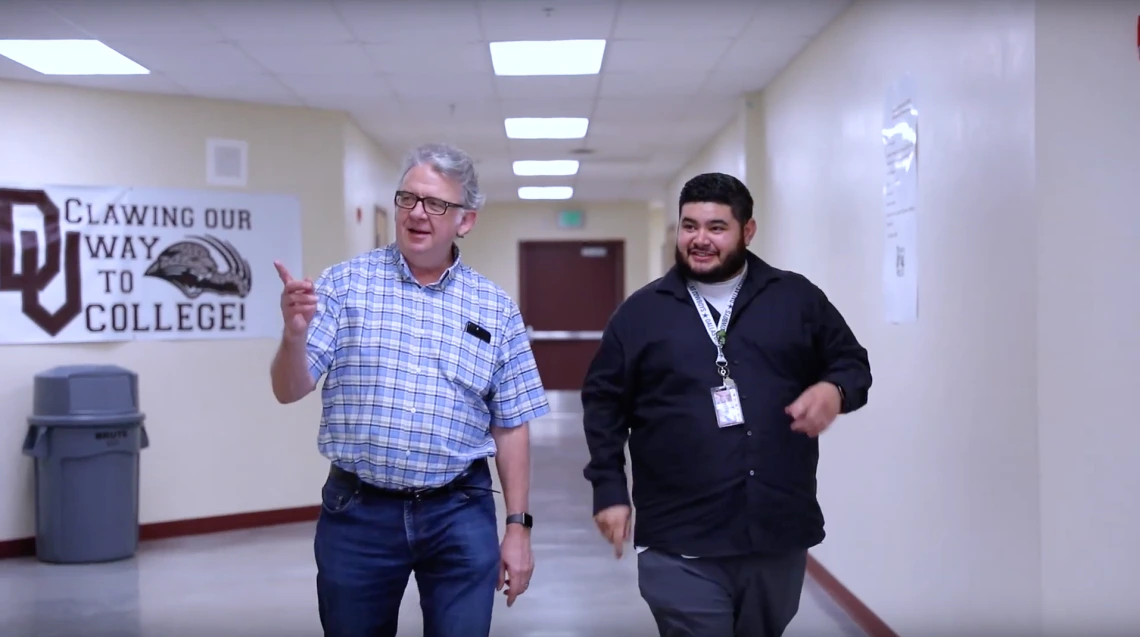From Invention to Impact: Illustrative Mathematics

In 2014, University of Arizona Distinguished Professor of Mathematics Bill McCallum, now retired, started a new company dedicated to transforming mathematics education across the U.S.
He had been involved in mathematics education throughout his career and was a lead author of the recent national standards known as the Common Core. He started working on Illustrative Mathematics in 2011 as an initiative of the UA Institute for Mathematics & Education, which was in part funded by the Bill and Melinda Gates Foundation.
“People wanted illustrations of the standards,” he remembers. “They wanted sample tasks to help students understand what they’d need to know to meet the standard.”
To that end, McCallum started a project within the university to create a free web resource for K-12 mathematics educators to create targeted, innovative ways of teaching mathematics concepts and skills as defined by the Common Core standards.
The online resource, known today as Illustrative Mathematics(link is external), combines the standards themselves with community-developed resources designed to illustrate and teach those standards, including tasks, videos, lesson plans and curriculum modules. Educators can download and use these resources as teaching tools in their classrooms. The site also serves as a place where educators can discuss the effectiveness of the tools and help improve future iterations.
“We thought that the project would come to an end,” says McCallum. “At some point, we realized we were creating something bigger, that we had a mission, that we really wanted to have an impact on the world.”
Working with Tech Launch Arizona, the commercialization arm of the UA, they developed a plan to move the project out of the university and into the world via a non-profit startup where it could have that impact.
Delivering Results
“I’ve seen improvements in student scores using Illustrative Mathematics,” says high school teacher Jaime Morado. “I noticed that scores aligned with how they were doing on the standardized AZ Merit tests that they take at the end of every year, and so that alignment was really nice because I could then see where students needed to grow… I found it invaluable because I was able to see exactly where their proficiencies are and where I could improve on their scores.”
As for using IM in the future, Morado says he’s “super excited” about implementing the latest version of the program.
According to Tech Launch Arizona Assistant Vice President Doug Hockstad, commercializing the IM technology was a bit outside of normal office processes because there was no patenting involved. Even so, he says Tech Launch Arizona and the UA were excited to take the invention forward.
“We were able to take this intellectual property and help build and support a company around it that’s having real impact,” he says.
That impact has been clear and measurable. Today, the company has grown from five to over 50 employees, has partnered with over 200 schools and is used by over 2,000 teachers.

